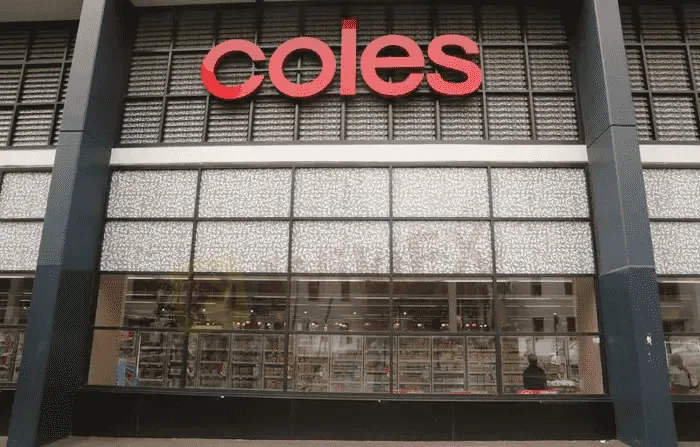简体中文
繁體中文
English
Pусский
日本語
ภาษาไทย
Tiếng Việt
Bahasa Indonesia
Español
हिन्दी
Filippiiniläinen
Français
Deutsch
Português
Türkçe
한국어
العربية
Australia’s Wesfarmers posts annual profit dip, but outlook upbeat
Abstract: Australian retail conglomerate Wesfarmers Ltd posted a 2.9% drop in annual profit on Friday, hurt by COVID-driven store closures, sticky supply chain bottlenecks and rising costs.

Australian conglomerate Wesfarmers Ltd, owner of the countrys no. 1 hardware chain, reported annual profit fell and warned of “challenging” inflation, but said raw materials prices were down while demand was high for home improvement projects.
The outlook issues on Friday shows a company transitioning from one extraordinary challenge to another: during COVID-19 lockdowns its products were in high demand but trading was disrupted, while it now faces soaring materials costs and consumer confidence dented by rising living cost pressures.
Wesfarmers net profit for the year ended June fell 2.9% to A$2.35 billion ($1.64 billion), bettering analyst forecasts of about A$2.2 billion, due to pandemic store closures and restrictions in the first half. Its main earner, the Bunnings hardware chain, raised its profit contribution by 0.9%.
But Australia ended lockdowns in late 2021 and overall profit in the January-to-June half leapt 13% as shoppers rushed back to the companys stores, which also include local versions for Kmart and Target outlets.
Bunnings, an institution in Australian retail, increased sales in the first seven weeks of the financial year that started in July, the company said, without giving more detailed profit guidance.
“The nature of the products in Bunnings, it‘s not all discretionary. There’s a lot of repair and maintenance spend,” said Chief Executive Rob Scott, speaking on a call with journalists.
Wesfarmers had previously reported it was exposed to skyrocketing prices of timber, amid surging global demand, but Scott said the cost of timber and other raw materials like cotton and plastic resin had moderated.
“These decreases in some of the raw materials prices will ultimately start to flow through to consumers over the next six to nine months … but I suspect over the next few months inflation will be a challenge,” he said.
Cost of living pressure also appeared to be benefiting budget department store chain Kmart, which makes about a third of the profit Bunnings generates, as shoppers looked for ways to cut costs.
Shares of Wesfarmers were up 1.7% in morning trading as analysts upgraded forecasts in line with the companys upbeat outlook. The Sydney benchmark was 1% higher.
Wesfarmers “will continue to leverage its scale and sourcing capabilities to manage inflation”, UBS analysts wrote in a research note.
Ord Minnett analysts wrote that it expected investors to up their forecasts for Wesfarmers, although “this may be partly offset by lower Bunnings margins and higher interest costs”.

Disclaimer:
The views in this article only represent the author's personal views, and do not constitute investment advice on this platform. This platform does not guarantee the accuracy, completeness and timeliness of the information in the article, and will not be liable for any loss caused by the use of or reliance on the information in the article.
Read more

Navigating the Intersection of Forex Markets, AI Technology, and Fintech
The financial world is transforming, driven by the rapid integration of artificial intelligence (AI) and innovative fintech solutions. This change is most apparent in forex markets, where algorithmic trading and deep learning are redefining strategies, risk management, and decision-making. In this article, we explore how AI-driven technologies are not only revolutionizing forex trading but are also propelling fintech innovations that enhance customer experiences, bolster security, and unlock new market opportunities.

The One Fear That’s Costing You More Than Just Profits
The fear of missing out (FOMO) is NOT what you think it is! Read the three lesser-discussed components that contribute greatly to FOMO trading!

Why More People Are Trading Online Today?
Discover why online trading is booming with tech, AI, and a push for financial freedom. From stocks to crypto, it’s a thrilling hustle for all.

Bitpanda Secures Full Broker-Dealer License in Dubai
Bitpanda has officially obtained a full broker-dealer license from the Dubai Virtual Assets Regulatory Authority (VARA), marking a significant milestone in its international expansion. This approval, which follows preliminary authorization granted three months earlier, enables the European digital asset exchange to introduce its comprehensive suite of virtual asset services to investors in the United Arab Emirates (UAE).
WikiFX Broker
Latest News
Why Are Financial Firms Adopting Stablecoins to Enhance Services and Stability?
Experienced Forex Traders Usually Do This Before Making a Lot of Money
Octa vs XM:Face-Off: A Detailed Comparison
When High Returns Go Wrong: How a Finance Manager Lost RM364,000
Bridging Trust, Exploring Best—WikiEXPO Hong Kong 2025 Wraps Up Spectacularly
Interactive Brokers Expands Crypto Trading with Solana, XRP, Cardano, and Dogecoin
Fidelity Investments Explores Stablecoin Innovation in Digital Assets Sector
Why More People Are Trading Online Today?
SEC Ends Crypto.com Probe, No Action Taken by Regulator
Broker Comparison: FXTM vs XM
Currency Calculator







